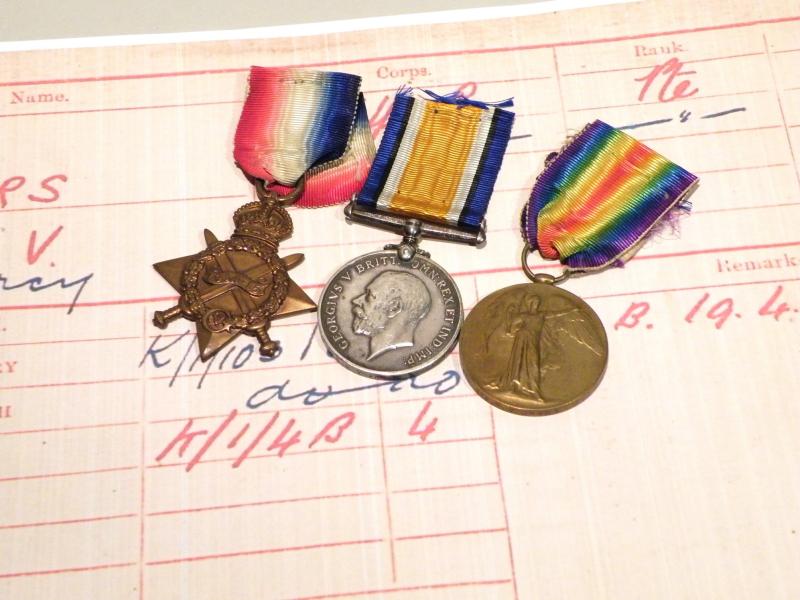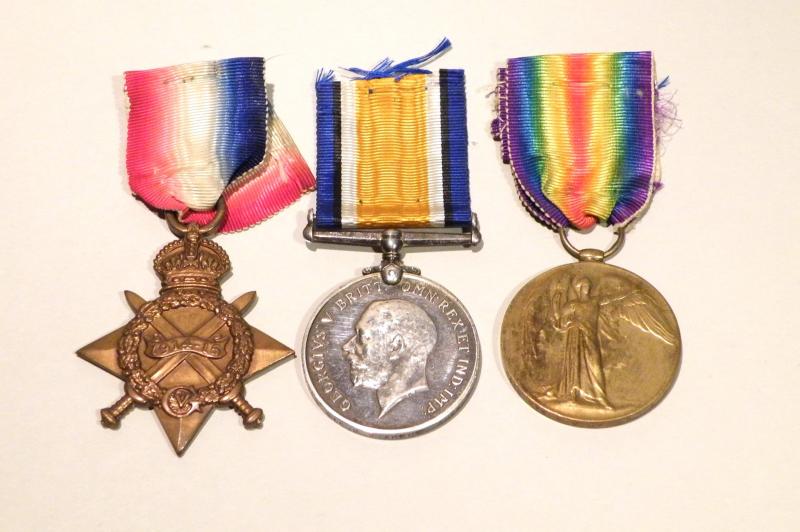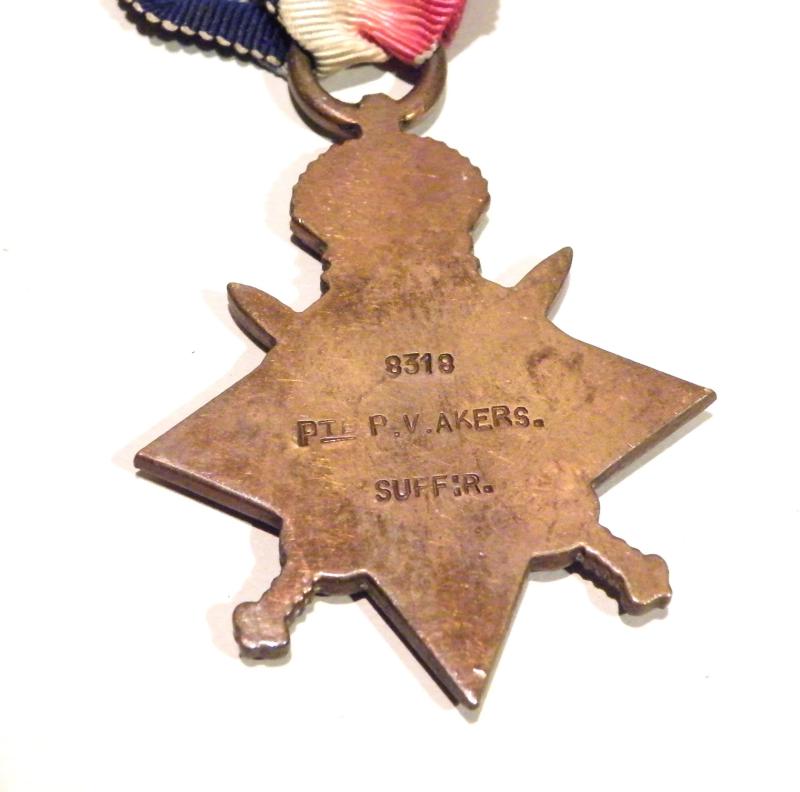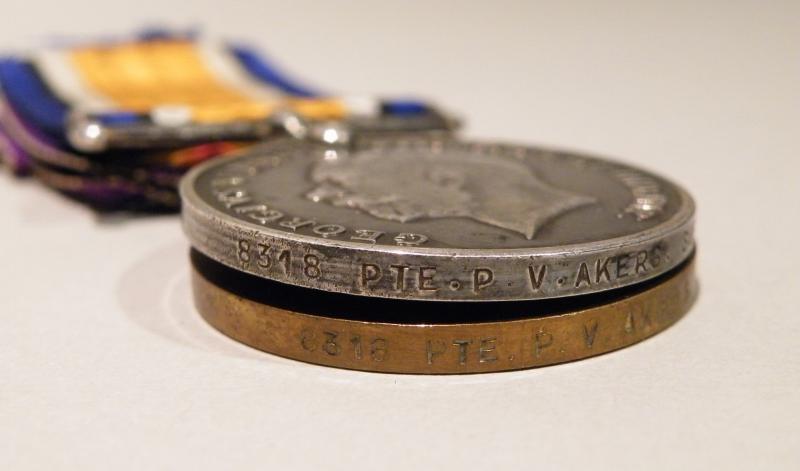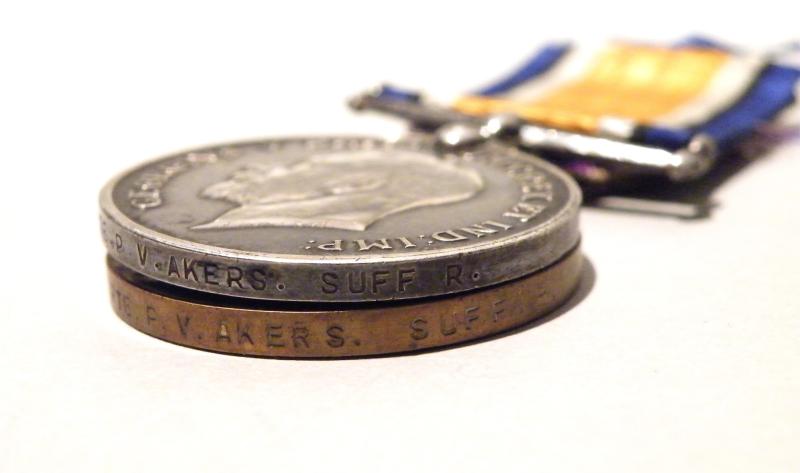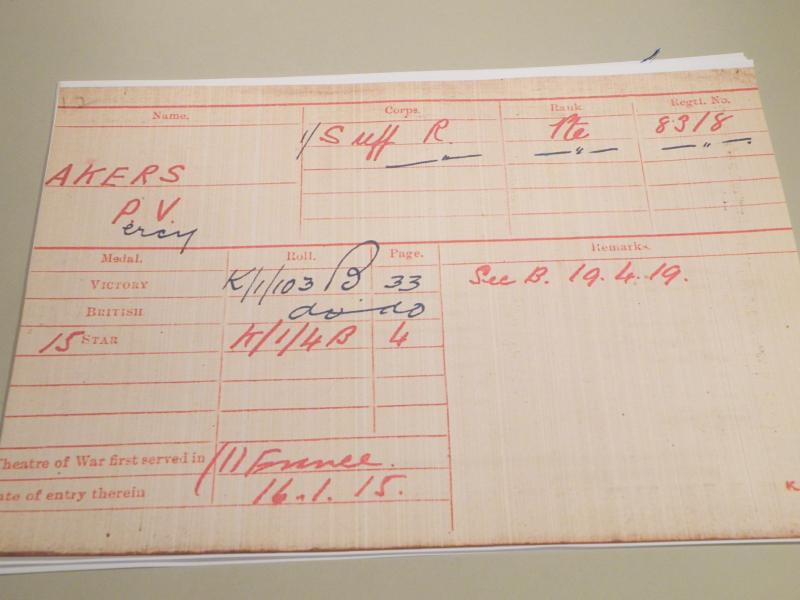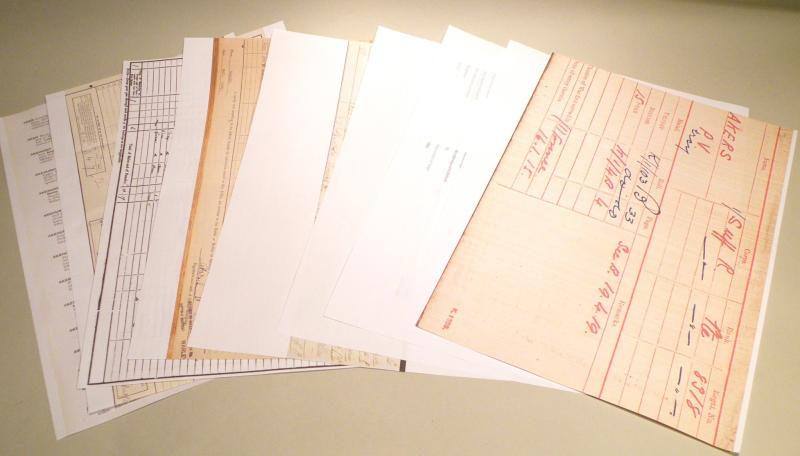1914/15 Star Trio to Akers 1st Suffolk Regiment Served Salonika
1914/15 star, British war and victory medal correctly named to 8318 Private Percy Victor Akers of the 1st Battalion the Suffolk Regiment.
Percy Akers was born in Woodbridge Suffolk 1895. His father James sadly died when Percy was only around ten years old, so with five other siblings he was raised just by his mother Marion.
In 1911 Percy was working as a shunter on the railways, probably at Woodbridge station, a very good job for a young man of sixteen. It is hard to say why Percy Joined the army, but with a service number of 8318, he must have enlisted between 1912 – 1913. The 1st battalion were serving in the Sudan when war broke out in 1914, but returned to England and they arrived home around the 23rd of October 1914 and given a few days leave.
On the 17th of November 1914 they joined 84th Brigade 28th Division, at Hursley Park Winchester after they proceeded to France from Southampton, landing at le Harve on 20th of January with a thousand strong battalion with four companies, a machine gun company and a company of Cyclists.
The division concentrated in the area between Bailleul and Hazebrouck and around the 2nd February they were marched to Ypres in bitter cold weather, reaching their destination around midnight.
In 1915 they were in action in The Second Battle of Ypres where they saw their first casualties in the trenches in the Verbrandenmolen area. They also were involved in the the Battle of Loos, where they took a very active part on the Hohenzollern Redoubt where that took many casualties and two privates were awarded the distinguished conduct medal for conspicuous gallantry. On the 19th of October 1915 orders were recieved to prepare to sail and on the 24th they left Marseilles for Alexandria in Egypt, arriving the by 22nd of November and the battalion went on to Salonika on HMT Anchises, taking a very zig zag course due to the patrolling enemy submarines.
By December 1915 they were dug in near Lembet, but preforming their duty was proving very difficult due to thick mists, bad maps and ignorance of the country, the battalion had no real orders, they just felt they were liable of attack from the Bulgarians, Germans and Austrian units. After moving to several front-line camps around the Birdcage area, they moved closer to Salonika taking part in the advance to the Stama in May 1916. But due to the Easter uprising and the battle of Jutland, the advance saw little report at home. The Advance to the Struma Valley was carried out on a broad front under very difficult conditions. They moved across very hilly country, roads being constructed as they went, the weather had now become very hot with the annoying accompaniment of flies and mosquitos. The men had no protection from the sun apart from the issued tents and mosquito nets had not yet been issue, so it was during this period that Malaria started to take its toll. Whole battalions were vastly reduced, the medical units, themselves were hit and unable to cope, however the 1st Suffolks were luckier than most, the battalion didn’t fall below 400 men. Later in the year they were in action during the occupation of Mazirko and the capture of Barakli Jum'a.
In 1917 they were involved in the night-time raid on the village of Kupri and then the capture of Barakli and Kumli. In mid 1918 a number of units returned to France The remainer of the Division were later in actio at the Battle of Doiran and the pursuit to the Strumica valley. When Hostilities with Bulgaria ceased at the end of September the 28th Division was in the area of Trnovo. They moved in early November on board HMT Bermudian to Gallipoli and occupied the Dardanelles Forts for a short time finally arriving home in Suffolk in April 1919. As a regular battalion, the 1st Suffolks didn’t stand still for long and received orders to India. They took part in the operations in Malabar until 1924. The men of the battalion were awarded the Indian General Service medal with Malabar 1921-22 clasp. There is no evidence I can find the Percy was awarded this medal, so he was probably discharged in 1919. It is also not known if Percy was wounded or sick at any time during the war, so his time of discharge is a bit fuzzy, however he does not appear on the 1921 census, so he may have still been serving.
In 1927 we find Percy in Essex where he was married to Nellie Waterman, in 1939 he is still residing in Essex and employed as a Police Sergeant in the Essex County Constabulary. Sadly, Percy Akers Died on 27th August 1957 in Cadwell St Mary, Grays Essex at the age of 62.
All three medals are in very good original condition, they come with various copied research including medal index card, medal roll, census, marriage and death records.
Code: 30175
125.00 GBP

